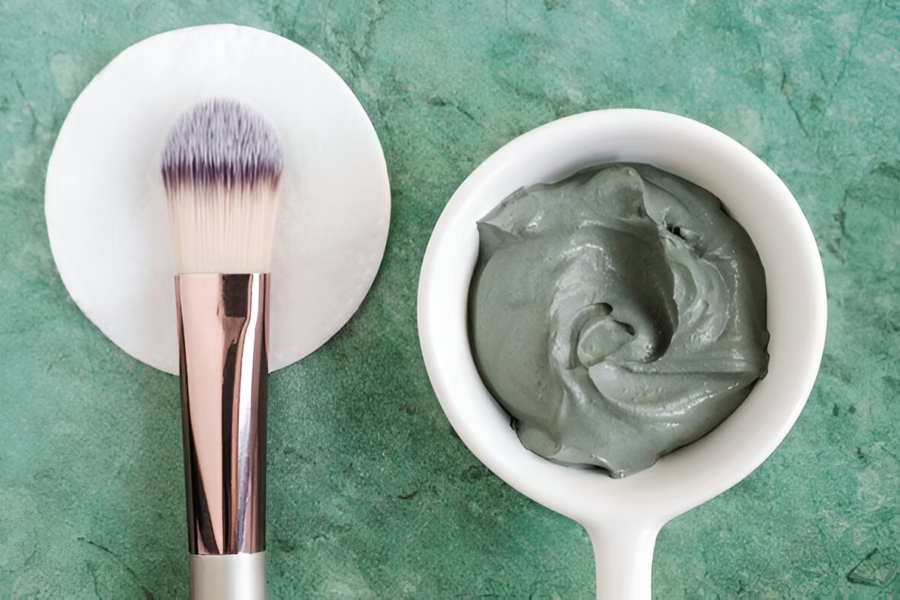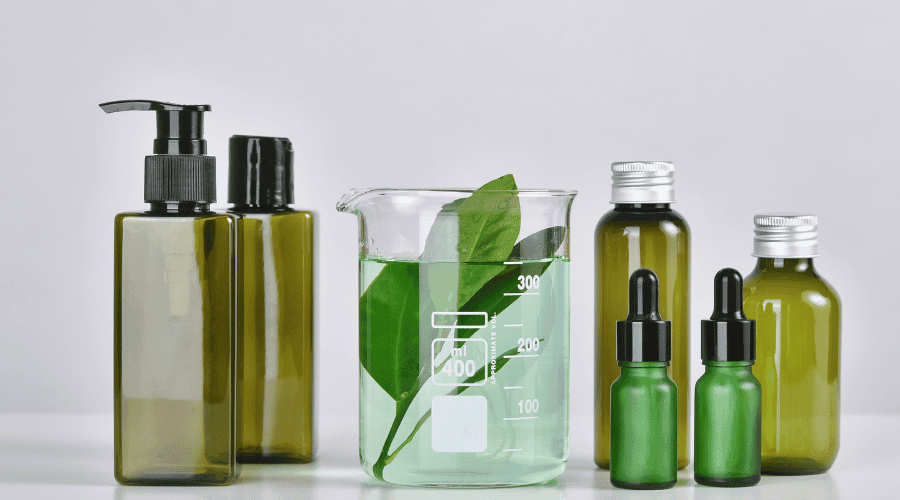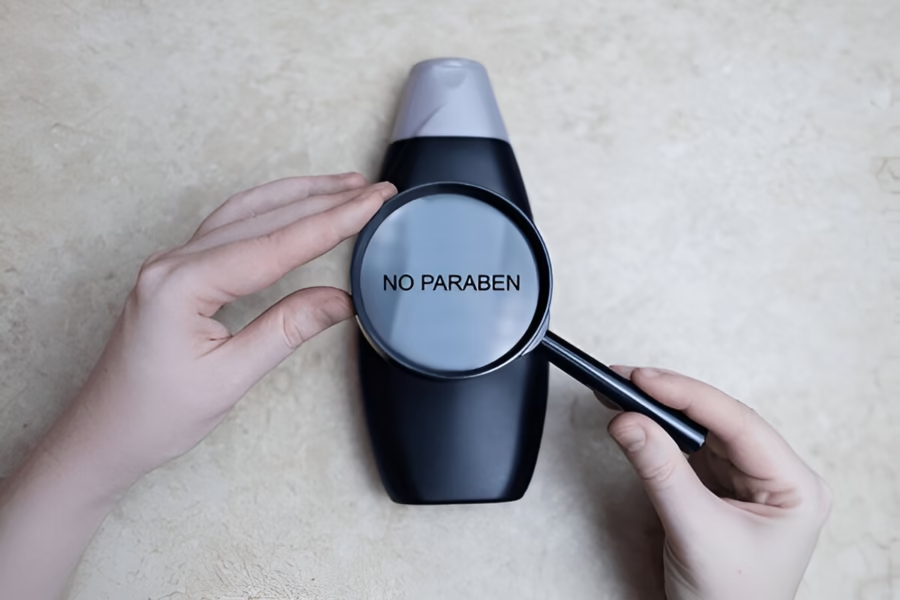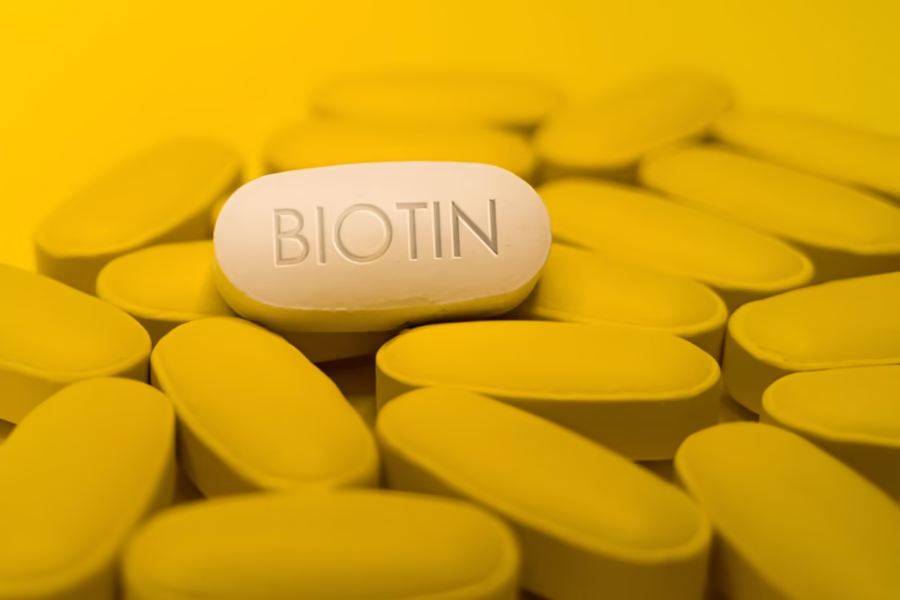Benzoyl peroxide is one of the most popular and effective acne-fighting ingredients in skincare. Whether you’re a teenager or an adult struggling with breakouts, benzoyl peroxide might be one of the first treatments you’ve tried. However, one common concern that many people have when using benzoyl peroxide is its tendency to cause dryness and irritation. In this article, we’ll dive into the truth about benzoyl peroxide, its drying effects, and how you can use it without experiencing uncomfortable dryness.
In This Article
- What is Benzoyl Peroxide?
- How Benzoyl Peroxide Works on Acne
- Does Benzoyl Peroxide Cause Dry Skin?
- How to Prevent Dryness When Using Benzoyl Peroxide
- How to Soothe Dry Skin Caused by Benzoyl Peroxide
- Is Benzoyl Peroxide Right for You?
- Conclusion
What is Benzoyl Peroxide?
Benzoyl peroxide is a powerful topical treatment widely used for acne. It works by targeting the root causes of acne, such as bacteria, excess oil, and clogged pores. When applied to the skin, it releases oxygen molecules that kill acne-causing bacteria, making it a vital part of many acne treatment regimens. It’s available in various forms, including gels, creams, cleansers, and spot treatments, often in concentrations ranging from 2.5% to 10%.
How Benzoyl Peroxide Works on Acne
Before we dive into the dryness factor, it’s important to understand why benzoyl peroxide is so effective at treating acne. Here’s a quick breakdown:
- Kills Bacteria: Benzoyl peroxide’s primary action is antibacterial. It helps eliminate Propionibacterium acnes (P. acnes), the bacteria responsible for causing acne.
- Reduces Oil Production: By reducing the production of sebum (skin oil), it helps prevent clogged pores, one of the main causes of acne.
- Exfoliates the Skin: Benzoyl peroxide helps to exfoliate dead skin cells, making it easier for pores to stay clear and preventing the development of new pimples.
With all these benefits, it’s no wonder benzoyl peroxide is a staple in many skincare routines. However, while it works wonders for acne, it can have some unwanted side effects, particularly when it comes to skin dryness.
Does Benzoyl Peroxide Cause Dry Skin?
Yes, benzoyl peroxide can cause dryness, especially when used frequently or in high concentrations. The main reason benzoyl peroxide dries out the skin is that it can strip away too much natural moisture. This is particularly true for people with sensitive or dry skin types.
Here’s why it happens:
- Excess Oil Removal: Benzoyl peroxide not only targets acne-causing bacteria but also strips away excess oil from your skin. While this is helpful for acne-prone individuals, it can also result in your skin becoming overly dry, especially if you don’t replace the lost moisture.
- Exfoliation: The exfoliating properties of benzoyl peroxide can make your skin flaky and dry as dead skin cells are sloughed off. This helps to prevent new breakouts but can also leave your skin feeling parched and irritated.
- Skin Irritation: If you’re using a high concentration of benzoyl peroxide or applying it too frequently, it can cause irritation. This irritation often leads to redness, peeling, and dryness.
How to Prevent Dryness When Using Benzoyl Peroxide
If you love the benefits of benzoyl peroxide but are struggling with dryness, don’t worry! There are steps you can take to minimize dryness while still getting the acne-fighting benefits of this powerful ingredient.
1. Start with a Low Concentration
If you’re new to benzoyl peroxide, it’s best to start with a lower concentration, such as 2.5%. This will allow your skin to gradually adjust without overwhelming it. High concentrations (5% to 10%) are usually reserved for more severe cases of acne, and using them too quickly can increase the risk of dryness and irritation.
2. Moisturize, Moisturize, Moisturize
Moisturizing is the key to preventing dryness when using benzoyl peroxide. Apply a good quality, hydrating moisturizer right after using benzoyl peroxide to replenish your skin’s moisture barrier. Look for moisturizers with ingredients like hyaluronic acid, glycerin, or ceramides, as these help lock in hydration without clogging your pores.
3. Apply It Only to Affected Areas
Instead of using benzoyl peroxide all over your face, apply it only to the areas where you have acne. This targeted approach can help prevent unnecessary dryness on parts of your skin that don’t need the treatment.
4. Don’t Overuse It
Using benzoyl peroxide too often can lead to dryness and irritation. Most people find that applying it once a day is enough. If your skin becomes too dry, try using it every other day or a few times a week. Your skin will still benefit from the acne-fighting properties without the harsh drying effects.
5. Use a Gentle Cleanser
When using benzoyl peroxide, it’s important to cleanse your skin with a gentle, non-drying cleanser. Avoid harsh scrubs or products that contain alcohol, as these can further strip the skin of its natural oils and worsen dryness.
6. Consider Adding a Hydrating Serum
To combat dryness, consider adding a hydrating serum to your skincare routine. Look for serums that contain hyaluronic acid or vitamin E, which can help restore moisture and soothe your skin.
7. Use Sunscreen
Benzoyl peroxide can make your skin more sensitive to the sun, so it’s essential to wear sunscreen every day. This will not only protect your skin from sun damage but also help prevent further dryness caused by UV exposure.
How to Soothe Dry Skin Caused by Benzoyl Peroxide
If you’ve already experienced dryness from using benzoyl peroxide, there are several ways to soothe your skin and restore moisture.
1. Use a Hydrating Mask
Hydrating masks can provide a quick boost of moisture and help relieve dryness. Look for masks that contain soothing ingredients like aloe vera, honey, or oatmeal. These will help calm irritated skin and replenish lost moisture.
2. Apply Aloe Vera Gel
Aloe vera is well-known for its soothing and healing properties. If your skin feels dry and irritated from benzoyl peroxide, apply a thin layer of aloe vera gel to the affected area. It will help hydrate and calm your skin.
3. Use Oil-Based Products
Sometimes, oil-based products can be a great way to combat dryness. Look for lightweight oils such as argan oil or jojoba oil. These oils help replenish your skin’s natural moisture without clogging pores, making them a great addition to your routine when using benzoyl peroxide.
4. Skip the Harsh Exfoliants
When your skin is already dry from benzoyl peroxide, avoid using harsh exfoliants. Over-exfoliating can further strip your skin of moisture and make dryness worse. Stick to gentle exfoliation methods, such as a soft washcloth or a mild enzyme exfoliator.
Is Benzoyl Peroxide Right for You?
Benzoyl peroxide is an effective acne treatment, but it’s not for everyone. If you have particularly sensitive skin, you may want to consider alternative acne treatments that are less likely to cause dryness and irritation. Some alternatives include:
- Salicylic Acid: A gentler option for exfoliating the skin and treating acne.
- Tea Tree Oil: A natural acne treatment with antibacterial properties.
- Retinoids: Used for both acne and anti-aging, but they can also be drying, so moisturization is key.
- Niacinamide: Known for its soothing properties, niacinamide can help calm irritated skin while reducing acne.
Ammore’s Beauty Tip
Always patch-test benzoyl peroxide on your jawline first to avoid irritation and help your skin adjust gradually.
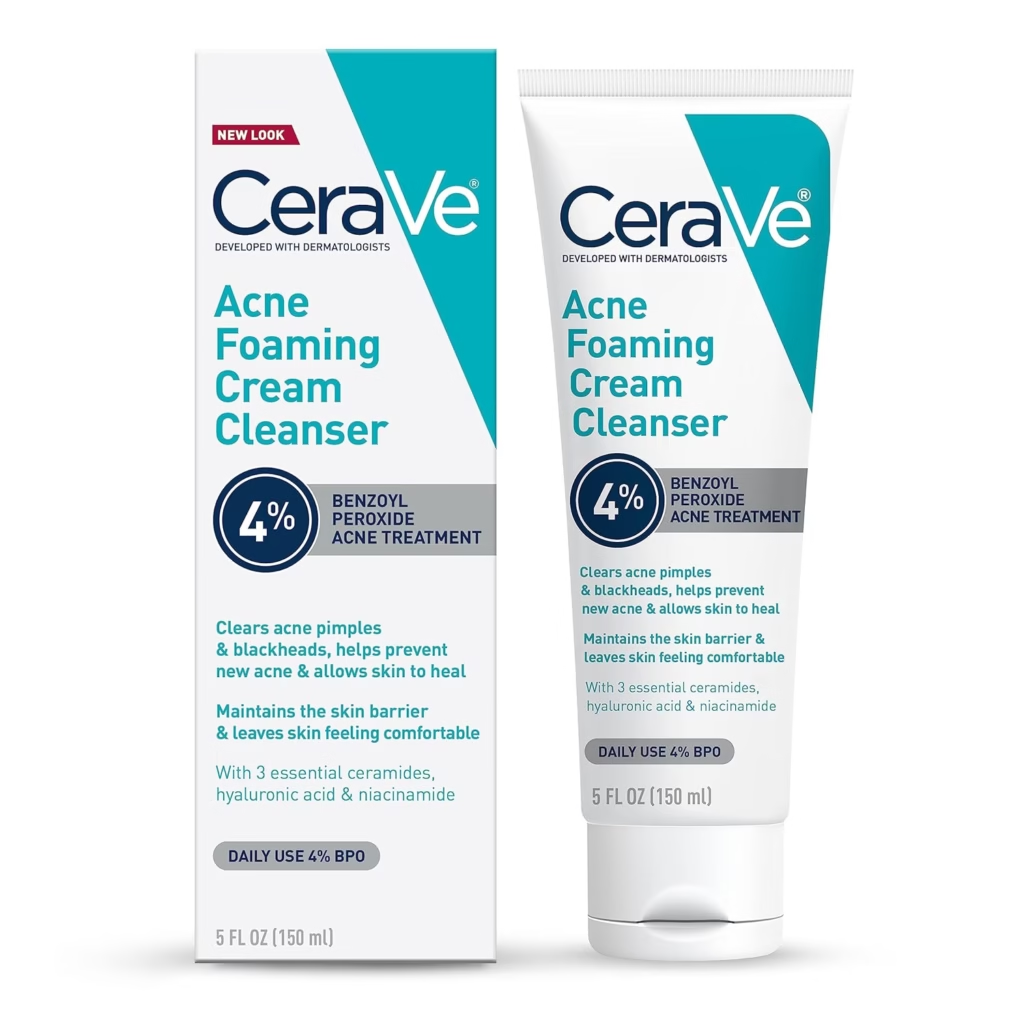
Product Of The Day
CeraVe Acne Foaming Cream Cleanser, 4% Benzoyl Peroxide Face Wash
Say goodbye to stubborn breakouts! This dermatologist-developed cleanser combines 4% benzoyl peroxide with ceramides to deeply cleanse pores, fight acne, and restore your skin’s natural barrier—all without over-drying. Perfect for oily, acne-prone skin.
Conclusion
Benzoyl peroxide is undoubtedly an acne-fighting powerhouse, but it can cause dryness and irritation if not used correctly. By taking the proper precautions, such as starting with a low concentration, moisturizing, and using the product sparingly, you can reduce the likelihood of dryness while still benefiting from its acne-fighting abilities.
Remember, your skin is unique, and what works for someone else may not work for you. If dryness persists or becomes severe, consider consulting with a dermatologist who can recommend a skincare routine tailored to your skin’s needs.
If you found this article helpful, share it with your friends and family to help them make the most of their acne treatment without the uncomfortable side effects!

